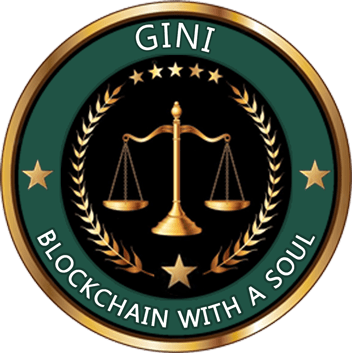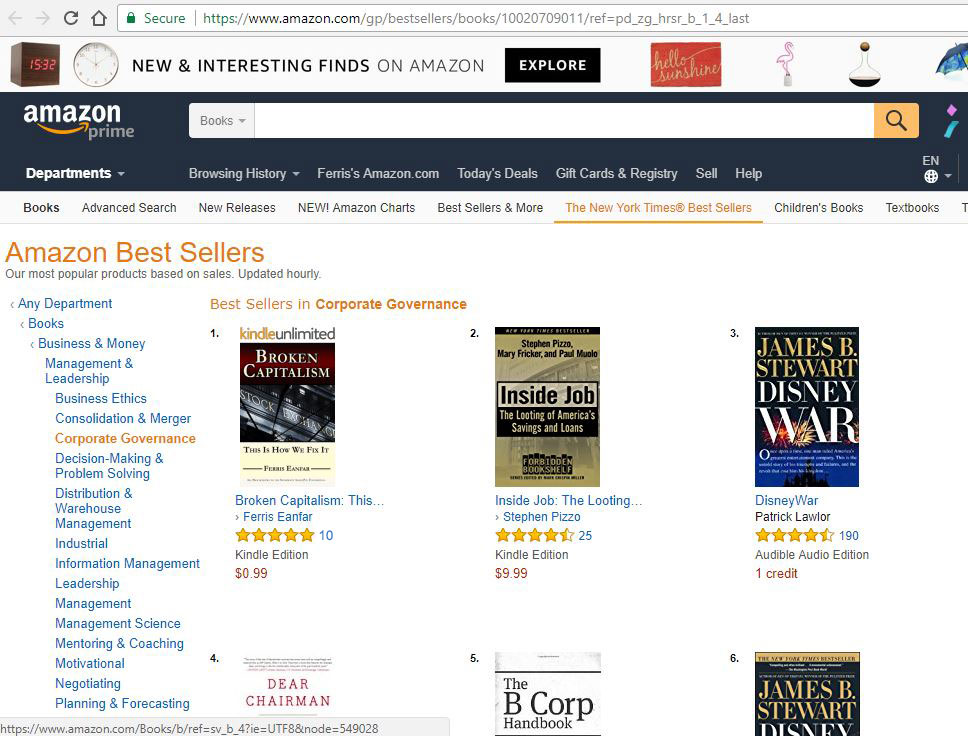Self-Censorship Destroys Accountability and Democracy. A free society and a free press are required to protect citizens from government and corporate tyranny. But when five gigantic corporations own and control the vast majority of all media and news companies throughout a country, journalists have no meaningful freedom to report on facts and citizens have no meaningful access to truth. Today, journalists and citizens are frequently monitored and disciplined by their corporate bosses or targeted by the IRS or FBI whenever they want to report on anything that might expose the illicit behavior of their companies, advertisers, or political bosses. This creates widespread fear and an ubiquitous form of systemic self-censorship, which is just as sinister as overt censorship.[1]
Power Concentration Distorts Our Perception of Reality. In 1983, 90% of American news and media companies were controlled by 50 companies. Today, over 90% are controlled by only five companies: Comcast, The Walt Disney Company, Time Warner, 21st Century Fox, and National Amusements. Collectively, the revenue of these five companies is over $250 billion. That’s a disturbing concentration of financial power, but their financial power is dwarfed by their political power and their ability to censor journalists and control the perceptions of millions of humans. By controlling so many channels of information into our daily lives and bombarding us with an endless stream of advertising and propaganda, engineered to exploit our subconscious impulses, these companies substantially shape every human’s perception of reality who is exposed to their ubiquitous psychological programming.
The Harm Caused by Media Consolidation. Several studies have been conducted on the unhealthy impact of high concentrations of corporate media power, which has been confirmed by dozens of former executives at media companies throughout the United States.[2] Among others, the negative consequences of media consolidation include:
- Fewer jobs and higher unemployment in media and journalism occupations.
- Concentration of decision-making power, leading to numerous forms of corruption, sexual harassment, and abuse by unaccountable media executives.
- The widespread destruction of in-depth investigative journalism, leading to shallow reporting and tabloid stories designed to stimulate emotions rather than educate[3].[4]
- Homogenization of music across mainstream media channels, leading to fewer opportunities for new artists.
- Less community-focused programming, leading to weaker community relations.
- Loss of community control over programming decisions, leading to cultural and class tensions.
- Less independently-produced programming, leading to many corporate conflicts of interest.
- Increased censorship of diverse perspectives, leading to fewer choices in political elections.
- Less political discussion, leading to decreased political awareness.
- Inadequate emergency weather/disaster warnings, leading to loss of life.
- Fewer minority-owned broadcast stations, leading to class and ethnic tensions.
This Is How Democracy Dies. As these media empires expand into virtually every crevice of human existence, there is an ever-increasing number of ways that they can collude with politicians to manipulate the general public in exchange for tax breaks and favorable regulatory treatment. As they expand, they have strong incentives and the power to hijack any public discourse that threatens their financial or political interests. This ever-expanding web of self-interest gives them the incentive to suppress their employees (journalists, editors, program directors, etc.) who try to report on important stories. When those journalists’ stories are suppressed due to overt censorship or self-censorship, citizens become disconnected from truth. This prevents citizens from seeing how they’re being exploited by governments and corporations. Thus, they have no way to hold powerful corporations and governments accountable for their performance, policies, and corruption.
Without Privacy, Citizens Have No Meaningful Power. Most humans today would agree that “life,” “liberty,” the “pursuit of happiness,” “free speech” . . . are fundamental human rights. Why? Because those principles are essential for every human’s physical and mental health. But it’s impossible to have any of those rights without privacy—privacy in your home, privacy in your communications with other private parties, privacy in your commercial transactions with private counterparties, and privacy in your exploration of ideas online and in the physical world. Without privacy in all those domains, you have no ability to hold powerful corporations and governments accountable for their actions. If they already know what you’re thinking and doing because they have access to all your personal communications and transactions, then they will inevitably use their power to predict, prevent, and exploit every action you take to hold them accountable.
Privacy Is a Fundamental Human Right. Regardless of whether the word “privacy” is codified in any national constitution, privacy is a fundamental human right.[5] In fact, the act of free speech—our most important human right upon which all other rights depend—is merely the last link in a long chain of events that enables a human to learn and communicate anything. If we are not free to privately explore controversial ideas, free to experiment privately to test our ideas, free to engage in commerce privately to obtain the items required to test our ideas, and free to live privately without a suffocating blanket of surveillance, then we will never be free to effectively use any of our rights to confront the powerful people, governments, and corporations that are destroying our wealth and political systems today. If we give them the power to spy on us, we give them the power to destroy all the pillars of democracy and legitimate national governance, upon which a democratic civilization depends.
Notes:
[1] Herman, E. S., & Chomsky, N. (2002). Manufacturing Consent: The Political Economy of the Mass Media. New York: Pantheon. See also many other examples: https://en.wikipedia.org/w/index.php?title=Self-censorship
[2] CommonCause.org. (2006). Real World Impacts of Media Consolidation. http://www.commoncause.org/research-reports/National_102406_Report_Perils_of_Media_Consolidation.pdf
[3] McChesney, R. W., & Sanders, B. (2014). Dollarocracy: How the Money and Media Election Complex is Destroying America: Nation Books.
[4] BillMoyers.com. (2013). John Nichols and Robert McChesney on Big Money & Big Media. Retrieved from https://vimeo.com/78884958
[5] Strasser, M. R. (2008, July 16). Fourth Amendment. https://www.law.cornell.edu/wex/fourth_amendment
About Ferris Eanfar
Ferris Eanfar has over 20 years of experience in technical, financial, media, and government intelligence environments. He has written dozens of articles and several books in the fields of Economics, Crypto-Economics, and International Political Economy, including Broken Capitalism: This Is How We Fix It and GINI: Capitalism, Cryptocurrencies & the Battle for Human Rights and the Global Governance Scorecard. Ferris is a cofounder of the Gini Foundation, which builds unique cryptocurrency systems to protect human rights, among other benefits; and the CEO of the AngelPay Foundation, a nonprofit financial services company with a mission to “return wealth and power to the creators of value.” To learn more about Ferris, please visit the About Ferris page.Visit Ferris on:

 Gini Website Coming Soon. We (
Gini Website Coming Soon. We (
